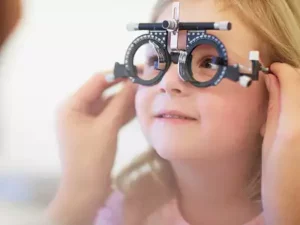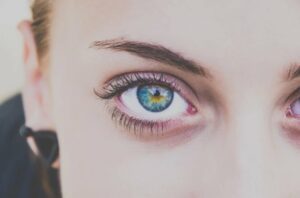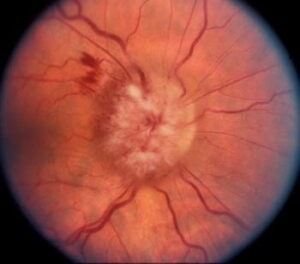Stress is a negative body reaction or feeling of tension that can be emotional or physical. They come from negative thoughts or experiences.
Over time, stress can harm a person’s health, especially if the main stressor is never identified.
Stress can be good, in small amounts and short duration, for example, it can help you avoid danger or react to a life-threatening situation, such as braking and avoiding a car accident. Another example is people who perform better at their jobs when under pressure. These periods of stress are usually short-lived.
Chronic stress is one that is present for a long time, which usually lasts for months or years, especially if you get used to its presence and forget that it is a problem. Today there are so many factors that can cause us stress: finances, work, marriage, politics, the news, etc.
Emotional stress does not cause blurred vision, but it can affect eye function. The nervous tic that occurs in the eyelids is strictly linked to stress and anxiety.
When you’re stressed, your body releases a hormone (cortisol), which puts your brain on alert, causes tension in your muscles, and increases the rate of your heart and breathing. Stress puts your body at risk of developing diabetes, high blood pressure, obesity, depression, anxiety. heart failure, visual, menstrual, digestive and skin problems.
Some symptoms of too much stress can be:
Tiredness, weight loss or gain, eye and vision discomfort, poor memory, difficulty paying attention and staying focused, constipation, diarrhea, sexual problems, stiff neck, insomnia, heavy use of alcohol and drugs to relax.
Stress and anxiety are linked with visual disturbances. Research carried out recently, concludes that so far, stress can be both the cause and consequence of various visual problems.
Cortisol has a negative impact on the eye and brain due to autonomic (sympathetic) nervous system imbalance and vascular dysregulation. Stress has the potential to cause optic neuropathies, trembling of the eyelids, damage to the retina, optic nerve, and macula.
In general, visual problems related to stress or anxiety are not serious, are usually temporary and resolve spontaneously. Even so, ophthalmologists recommend not to overlook these symptoms, and visit a specialist to rule out any eye pathology that may be masked by stress or to avoid future eye problems.





